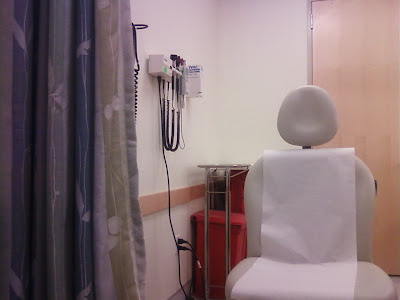
In an Op Ed pieces in the NY Times yesterday, Orszag formerly of the White House, tries to make the point that under the new health care law, there should have been some modification of malpractice reform if physicians only did what the Government told them, namely practice the Government approved evidence based medicine, aka Comparative Clinical Effectiveness, and whatever nostrum it should be called.
He starts by saying:
The health care legislation that Congress enacted earlier this year, contrary to much of today’s overheated rhetoric, does many things right. But it does almost nothing to reform medical malpractice laws. Lawmakers missed an important opportunity to shield from malpractice liability any doctors who followed evidence-based guidelines in treating their patients.
We agree with none of the above. As we have shown the law is faulty in many dimensions and also as the research shows it is not at all clear that changes in tort malpractice will materially change the practice of medicine.
He proposes:
The traditional way to reform medical malpractice law has been to impose caps on liability — for example, by limiting punitive damages to something like $500,000. A far better strategy would be to provide safe harbor for doctors who follow evidence-based guidelines. Anyone who could demonstrate that he has followed the recommended course for treating a specific illness or condition could not be held liable.
The problem is that most physicians do treat patients in a standard manner since most patients have simple problems. When complex problems are presented and the physician treats the patient in a standard manner that is often when the problems arise.
Let me give some examples:
1. Prostate Cancer: As we have stated before many time, prostate cancer is a complex issue. 90% of the time it has a benign progression, and will not be the ultimate or proximate cause of mortality nor even morbidity. However, and this is the case, there are times when it can cause death quickly. We do not really know why at this stage. Thus if a patient presents with a low PSA but the velocity exceeds the standard level, the evidence based consensus says wait a while. Yet if we were to look at a first degree relative who died of an aggressive form of PCa then we should perform a biopsy. In that case we have a 25% chance of detecting a Gleason 7 or greater even though the PSA may be below 4. Then we should act. If however we follow the evidence, rather than the full Bayesian data set, we may see death of the patient in less than 4 years.
2. Type 2 Diabetes: The standard is to medicate and monitor. It becomes a steady cash flow to the physician and in general does not solve the problem in any manner. The only solution is diet and exercise. How do we get the patient to respond. The same would apply to smoking.
3. Breast Cancer: The most recent guidelines are not to do mammograms under 50 and over 75. Yet we now that many women over 75 get breast cancer and under 40 there is also a more than zero incidence. If we were to just follow the guidelines, the "evidence" then what? If we go beyond will we not be compensated?
He continues:
Better technology would help, too. Your doctor’s computer should be able to not only pull up your health records (after you have approved such access) but also quickly suggest best-practice methods of treatment. The doctor should then be able to click through to read the supporting research. Subsidies in the stimulus act help doctors pay for this kind of technology.
This is the EMR issue. Do we want the computer to be the watchdog for the physician. If the physician makes a different decision from the computer will they be liable. Remember the prostate case. The computer will suggest based upon some Government consensus what should be done to keep costs down. Do we really want physicians now to fear some GS 9 and their suggestions?
It appears that Orszag seems to say: If the Physician follows the Government mandated set of procedures then the Government will see that the Physician is protected from any form of litigation based upon sovereign immunity even if the patient dies as a result of an inappropriate therapy. This is akin to the statement of the Germans after WW II, "we were just following orders" Are we turning medicine into a set of pre-determined algorithms.
This is one of the most poorly thought out suggestions that I have ever seen. It is more Government, it assumes that physicians are robots, following some dictate, and that all humans are identical. Truth be told we are all different, we are all individuals, and that is why physicians have to deal with the person. On the other hand perhaps what he wants is physicians to become what we have created in public education, union members, educated to follow orders, get over paid, under worked, and generating poorly educated young people. I truly hope not.



